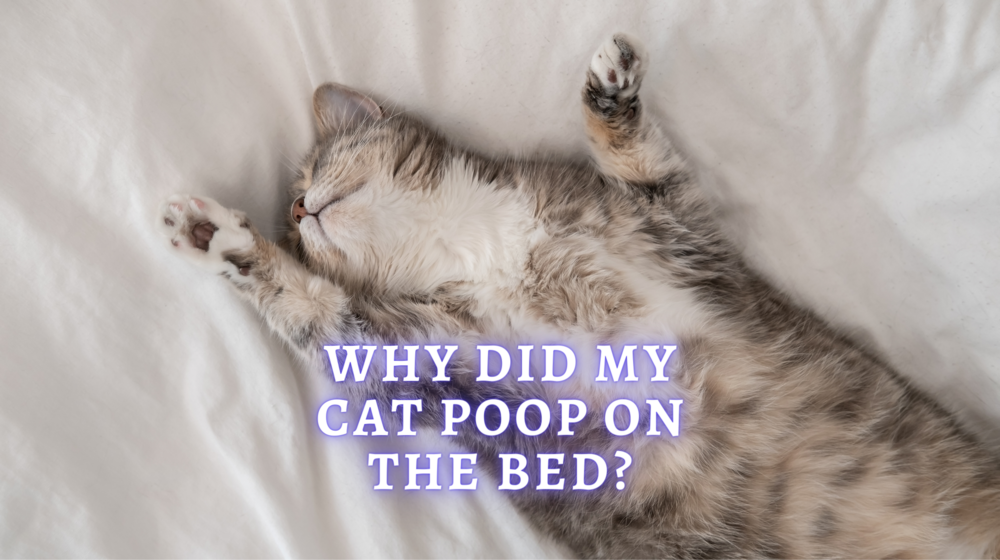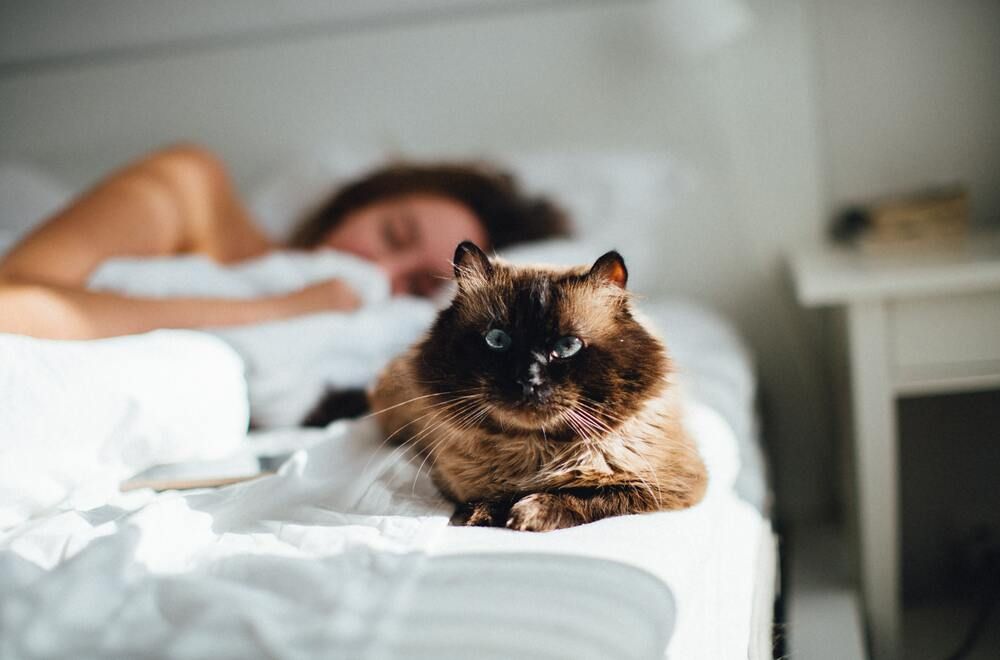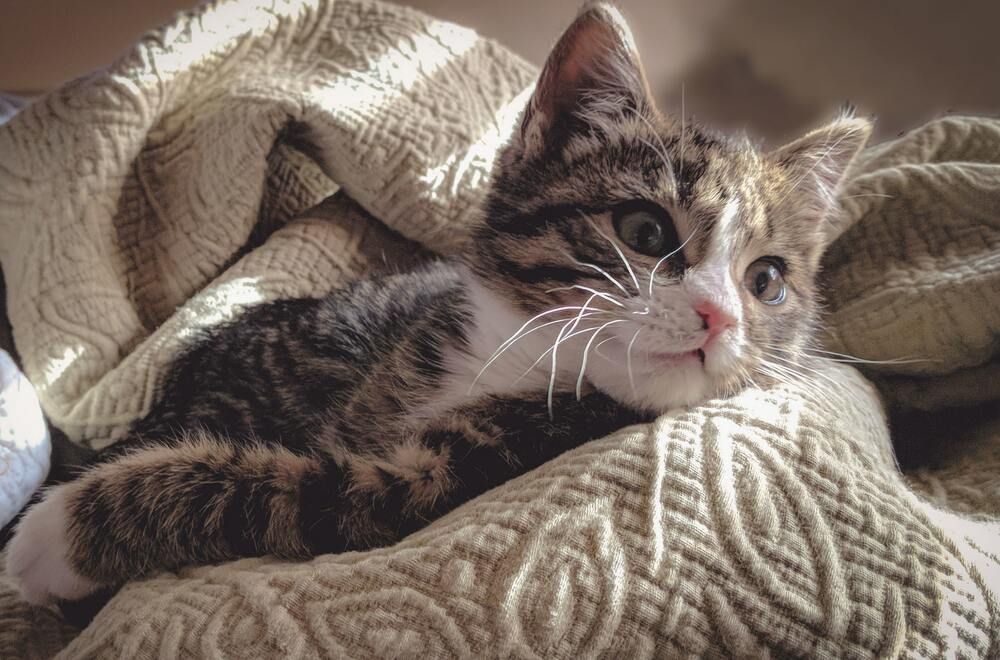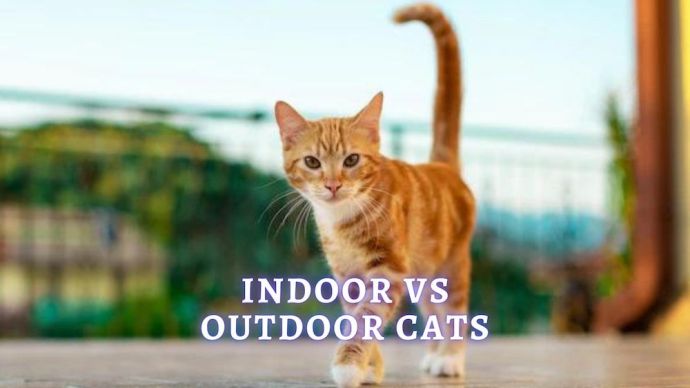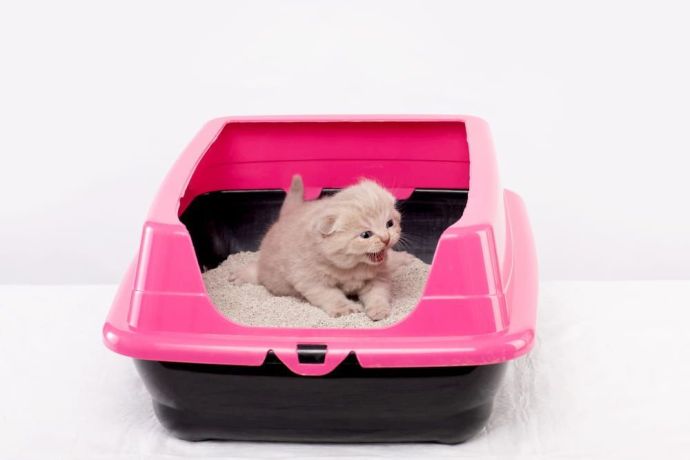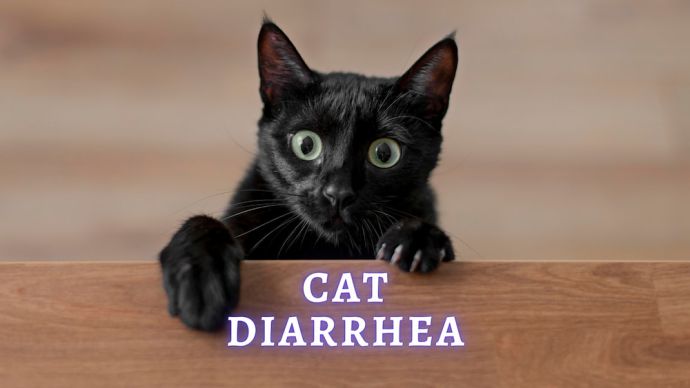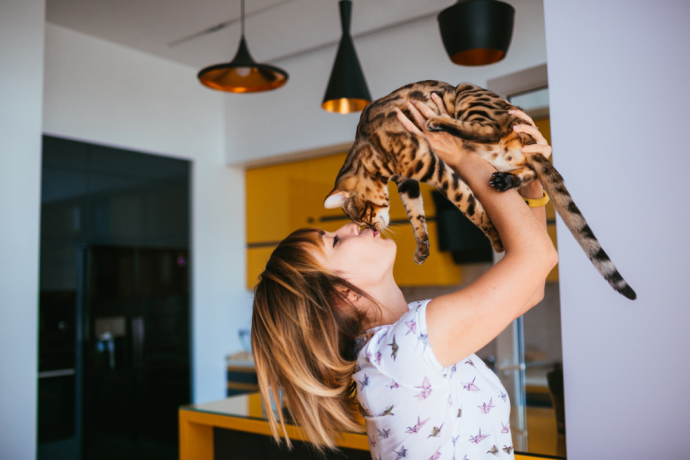Why Did My Cat Poop On My Bed? (Vet Approved Advice)
Written by:
Author: Vicki Smirnova
Vicki Smirnova is a professional writer and editor who adores animals and helps readers get along well with their pets. She has been working in digital media for more than 5 years and has great experience writing content about lifestyle, including pets. Vicki specializes in dog health and nutrition, cat feeding, dog training. She is an aquarium lover and is passionate to write about fish care at home. Also, Vicki headed several websites and worked as a news editor.
View all 244 articlesLearn about our editorial process and veterinary review board.
Reviewed by:
Veterinary review
by Dr. Linda Simon
Dr. Linda Simon is a veterinary surgeon working with seven years of experience. She is a fellow of the British Veterinary Association and specializing in animal medicine. Also, she has been the Woman magazine resident vet for the past two years and writes a regular column for them, focusing on pets and their health.
View all 30 articlesLearn about our veterinary review board
Viewed: 408
Updated on: 06/15/2023
If your cat poops on the bed, you first need to understand the reasons for this behavior, and then you will make a plan of action. For a pet, the bed has a lot in common with a cat tray: the familiar smells of the pet and owner, the ability to conveniently bury things, and the privacy offered by the distance from the floor. This article will explain why cats poop on the bed and how to fix this pet behavior.
Why Did My Cat Poop on My Bed?
Sometimes it happens that a tiny kitten can poop in its owner’s bed during the period of accustoming to the cat box. But there are also times when an adult litter-trained pet poops on the bed. Such situations raise many questions among pet owners. After all, a cat is accustomed to the tray and should know where its toilet is.
Some owners mistakenly think that the pet is doing this to show their displeasure for some reason or to take revenge on their owners. However, for a cat, this is a normal defecation process rather than a way to act out or make a point. In such situations, the task of the cat owner is to find out what is causing this behavior.
RELATED: Why Does My Cat Not Cover Poop?
Causes of Inappropriate Defecation
There may be several reasons for defecation in the wrong place, for example, illness or pain, the wrong pet tray, a closed or hard-to-reach pet box, lack of litter in the cat litter box, increased cleanliness of the cat, conflict with other animals in the house, stress or fear, territory marking or attention seeking.
Health
If your pet has pooped in your bed for the first time, you need to have them checked by a veterinarian. Many diseases, including IBD and food allergies, cause a cat to defecate in the wrong places. We are sometimes advised to perform a stool analysis, checking for worms, protozoa, or abnormal bacteria. After receiving the results of the tests, you need to contact the veterinarian and ensure that the pet is healthy and has no hidden diseases that can cause defecation in the wrong place. If the results of the tests and examination by the veterinarian show that your cat has health problems, treating them should solve the problem. And after a full recovery, if signs persist, we may need to correct the learned behavior or ‘bad habit’.
Sometimes a cat’s digestive problems are visible to the naked eye, which could be diarrhea or constipation. The owner can roughly understand how often the cat relieves himself and, in turn, realizes something is wrong. Also, if a cat experiences difficulty or pain during defecation, the cat may reflexively associate these unpleasant sensations with the litter box. As a result, cat may use the owner’s bed.
Suitable litter box
Making the pet as attractive as possible for the cat is necessary. Pay attention to the following things: cat litter, size of the litter box, location, presence of scented chemical cleaners near the cat tray and level of privacy. Such litter box issues are significant for the cat and help comfortably do her business in the litter boxes.
Also, an essential factor in this pet behavior may be an inappropriate, closed or hard-to-reach cat tray.
The enclosed litter box is very popular with cat owners who live in small apartments or houses. Such a pet tray hides waste products from the eyes of the owners. The appearance of such a tray is more appealing and presentable. It undoubtedly has pluses, but there are also minuses.
The disadvantage of such a tray is that the owners very often need to choose the right size of such a tray. As a result, the pet cannot comfortably sit in it. During defecation, the cat sits slightly raised from the surface of the litter and may touch the roof of the litter box with its head or ears. Of course, the cat will start looking for a more comfortable place, such as a bed. If choosing an enclosed litter box for your pet, add 3-4 inches to her height when ensuring the roof is tall enough.
In continuation of the theme of cat trays, it is necessary to regularly replace the litter and clean it daily of the solid waste products of the pet. Regular cleaning of the litter box will allow a finicky and especially clean pet to defecate in the right place and not cause unnecessary trouble to its owner. Consider investing in a self-cleaning tray if your schedule makes regular cleaning tricky.
Cat litter
Very often, the cat does not like the feel of the litter. If they dislike the way the litter feels or smells, the cat will not use it and will use another place for the toilet. The presence of litter in the cat’s tray is also an important factor for the correct behavior of the cat. Even if your pet has been using a litterless litter box normally for a couple of years and suddenly refuses to do so, this is normal. Cats are naturally predisposed to hide their feces and bury them in the ground or sand. If a cat used a pet litter box without litter, the explanation is quite simple – this pet was very patient. Therefore, you should not be very surprised or disappointed in your cat if she stops pooping in a litter tray without litter and prefers your bed. Instead, try using some kitty litter and observe the cat’s behavior. Perhaps this will be the solution to the problem. Always make sure the level of the litter is high enough, 2-3 inches off the bottom of the tray.
RELATED: Best Dust-Free Cat Litters Review
Other pets
If you have multiple pets, one of the pets may stop using the shared own litter box. In this case, an anxious cat may start looking for a safer, quieter, softer place somewhere at a height from the floor and away from other felines. The owner’s bed is undoubtedly the most secluded and safe place for a pet. And if your cat pooped in your bed – do not rush to scold her. Better try to help her and figure out what’s wrong, what prompted her to commit such an act.
Territory marking: Remember that pets mark their territory. Inappropriate soiling may be associated with the presence of other animals on the part of the cat.
Attention seeking: If you spend little time with your pet, he may be forced to attract your attention using a ‘dirty protest’. Having said this, some vets and behaviorists do not believe pets think in this way, and if they are under-stimulated or lonely, it is likely their anxiety (rather than resentment or anger) that has driven their behavior.[1]
How to Stop Inappropriate Cat Pooping
If you cat is pooping on your bed, the first step is to check the pet’s health. Take them to the vet. The specialist will be able to help in case of diseases or infections and will provide both medical therapy and advice. Pain associated with health problems can also cause the need to cope in the wrong place. In this case, it is also recommended to consult a veterinarian. For example, an arthritic pet may require some anti-inflammatory medicine, to allow them to posture in comfort.
If the veterinarian and tests confirm that everything is fine with the health of your pet, try replacing the litter box or the litter in it. Perhaps the litter box is not the right size or the litter is one your pet is not fond of. Ensure there is 1.5 trays per pet (so 2 for a single-cat household or 3 for a 2-cat household) and that they are in areas of low foot traffic.
Especially clean cats can be picky about their litter box. In this case, the pet may refuse to poop in a litter box that is already filled with feces. The solution to the problem is regular and timely cleaning of the cat’s litter box of your pet’s solid waste products.
So that other pets do not cause any disturbance, you need to separate the pet trays and place them in different rooms of the apartment or house. If there is a dog in the house, try to correct the dog’s behavior so that it does not disturb the cat and does not climb into the cat’s tray. You can also restrict the dog’s access to the cat’s tray by protecting it with a grate or a door through which the pet can pass, but the dog cannot.
You can minimize territorial marking by spaying or neutering the pet. Not only is this advisable to prevent indoor soiling, there are also health benefits including the reduced risk of certain reproductive cancers.
Out of boredom or a lack of attention, the pet can also start pooping in our bed. To minimize the risks, you need to regularly spend time with the cat. Not just sit around, no. A good brush, some scenting opportunities, laser chasing, food puzzles, and plenty of exercises. Such actions will help strengthen your bond and burn off your cat’s extra energy. Spending time together with the owner can help a pet feel calmer and loved, naturally reducing stress levels and minimizing the risk of indoor soiling.[2]
READ MORE: Can Cats Share a Litter Box?
Last words
The first thing you need to pay attention to is the kitty’s health. Both physical and psychological issues can lead to bed soiling. Next, check the condition of the cat’s tray, and litter. Be sure your cat is getting plenty in the way of love, care, exercise and mental stimulation. Once we have identified the trigger for the behavior, we can make a plan to stop it from happening.
READ MORE: Cat Pooping On The Floor
People also ask
Why did my cat suddenly poop on my bed?
A cat pooping on the bed, thereby marking it. This sometimes happens when he starts puberty, particularly in multi-cat households and when trays are not cleaned out as often as they should be. Territorial marking can be used to display an alpha status or even send signals to the opposite sex when ready for mating.
What do I do if my cat poops on the bed?
You must first determine the reason for this behavior. To do this, check the pet’s health and remove the source of any stress. Make sure they have a good litter box set up.
Clean the bedding on a hot wash, ensuring the mattress is also cleaned if soiled. Use enzymatic cleaners to completely eliminate the odor (rather than just mask it).
How do I stop my kitten from pooping on my bed?
We can stop cat pooping by identifying the cause. The first thing to do is to exclude health problems by consulting with a vet. If given the all clear, we then need to put our detective hats on, and figure out what is upsetting our kitty.
Why did my cat poop on my bed after washing it?
If your pet seems to do this whenever you have cleaned the sheets, it is likely a response to the new smell. They are making the sheets smell more familiar. Consider using a more neutral-smelling detergent and keep your cat out of the bedroom for the first day or two after a bedding change.
Article Sources:
- “Litter Box Problems.” ASPCA, aspca.org/pet-care/cat-care/common-cat-behavior-issues/litter-box-problems.
- “How to help your cat(s) use the litter box.” Humane Society, humanesociety.org/resources/how-help-your-cats-use-litter-box.
 Cat Care Why Does My Cat Attack My Legs? 10 Reasons Why and What To Do About It (Vet-Approved Advice)
Cat Care Why Does My Cat Attack My Legs? 10 Reasons Why and What To Do About It (Vet-Approved Advice) - 46013
- 21
 Cat Veterinary Tips Cat Stomach Gurgling: Vet Advice on Why is Your Cat Stomach Gurgling?
Cat Veterinary Tips Cat Stomach Gurgling: Vet Advice on Why is Your Cat Stomach Gurgling? - 36469
- 4
 Cat Veterinary Tips My Cat Lost its Voice: Can Cats get Laryngitis? (Vet Advice)
Cat Veterinary Tips My Cat Lost its Voice: Can Cats get Laryngitis? (Vet Advice) - 23554
- 13









